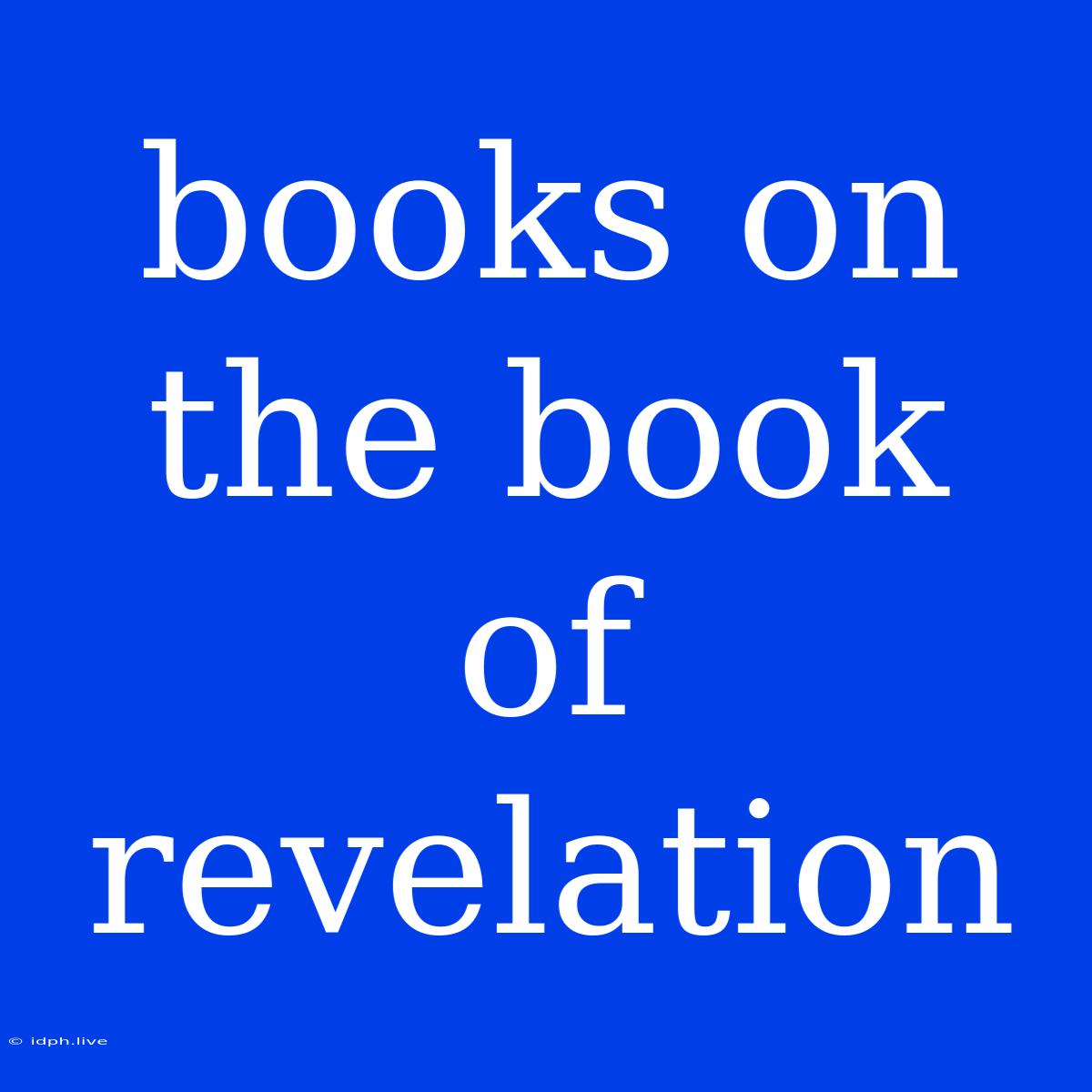Unlocking the Secrets of Revelation: A Guide to Books on the Book of Apocalypse
The Book of Revelation, the final book of the Bible, is a captivating and often mysterious text that has sparked countless interpretations and debates throughout history. For centuries, theologians, scholars, and everyday readers have sought to decipher its cryptic symbols, prophecies, and visions. If you're intrigued by the Book of Revelation and eager to delve deeper, exploring books dedicated to its interpretation can be a rewarding journey.
Why Explore Books on Revelation?
Understanding the Book's Context: The Book of Revelation, with its vivid imagery and apocalyptic themes, can be challenging to grasp. Books dedicated to Revelation can provide crucial context, offering insights into the historical, cultural, and literary background of the text.
Navigating Diverse Interpretations: The Book of Revelation has been interpreted in various ways, from literal to symbolic and from premillennial to postmillennial. Books on Revelation often present different perspectives, allowing you to explore a wider range of interpretations.
Gaining Theological Insights: Revelation offers profound theological reflections on God's sovereignty, the nature of evil, the coming judgment, and the hope of a new creation. Books exploring Revelation can illuminate these theological themes, deepening your understanding of Christian faith.
Navigating the Landscape of Books on Revelation
Here are some popular categories of books that can help you navigate the Book of Revelation:
1. Commentaries:
- Comprehensive Commentaries: Offer in-depth analysis of the text, including word studies, historical context, and theological insights.
- Verse-by-Verse Commentaries: Guide readers through each verse, offering interpretations and explanations.
- Theological Commentaries: Focus on the theological implications of the book, exploring themes of eschatology, Christology, and God's sovereignty.
2. Historical and Literary Studies:
- Historical Context Books: Explore the social and political environment of the first century, shedding light on the cultural influences that shaped the book's message.
- Literary Analysis Books: Investigate the book's literary style, symbolism, and structure, offering insights into its intended audience and purpose.
3. Contemporary Interpretations:
- Practical Applications Books: Focus on applying the themes of Revelation to contemporary life, addressing issues like suffering, hope, and the nature of evil.
- Prophetic Interpretations Books: Explore current events through the lens of Revelation, offering perspectives on global affairs and societal trends.
4. Theological and Philosophical Explorations:
- Eschatological Studies: Dive into the book's understanding of the end times, examining concepts like the millennium, the second coming of Christ, and the final judgment.
- Christological Studies: Focus on the figure of Christ in Revelation, exploring his role as king, judge, and redeemer.
Choosing the Right Books for You
When choosing books on Revelation, consider your own interests and reading level.
- For Beginners: Opt for books with clear explanations, engaging language, and helpful charts or diagrams.
- For Intermediate Readers: Choose books that delve deeper into the text, offering more advanced analysis and theological discussions.
- For Advanced Readers: Explore books by renowned scholars and theologians, focusing on specialized topics and in-depth research.
Remember, the Book of Revelation is a journey of discovery. Don't be afraid to explore different interpretations, engage with various perspectives, and allow the text to challenge and inspire you.

